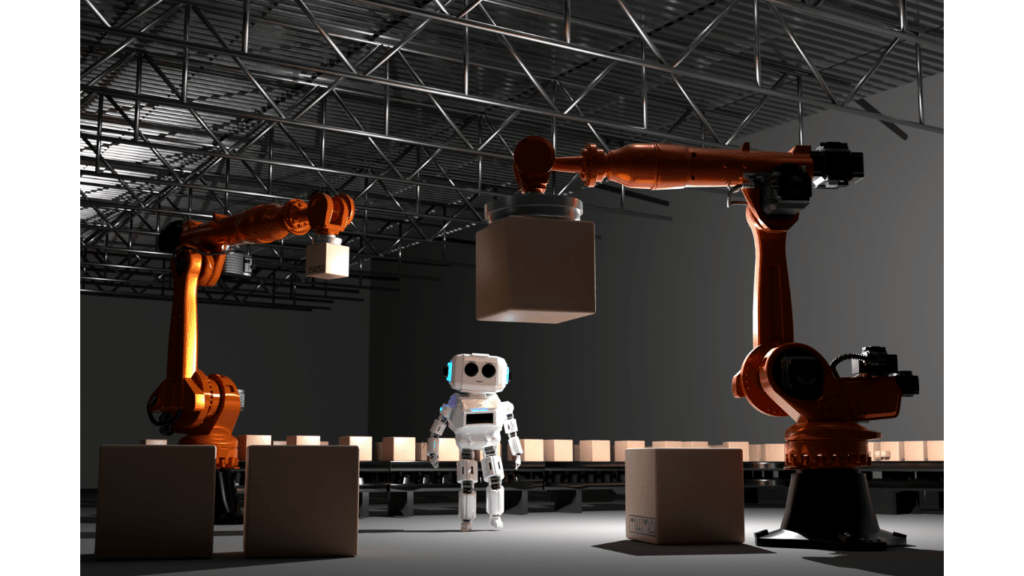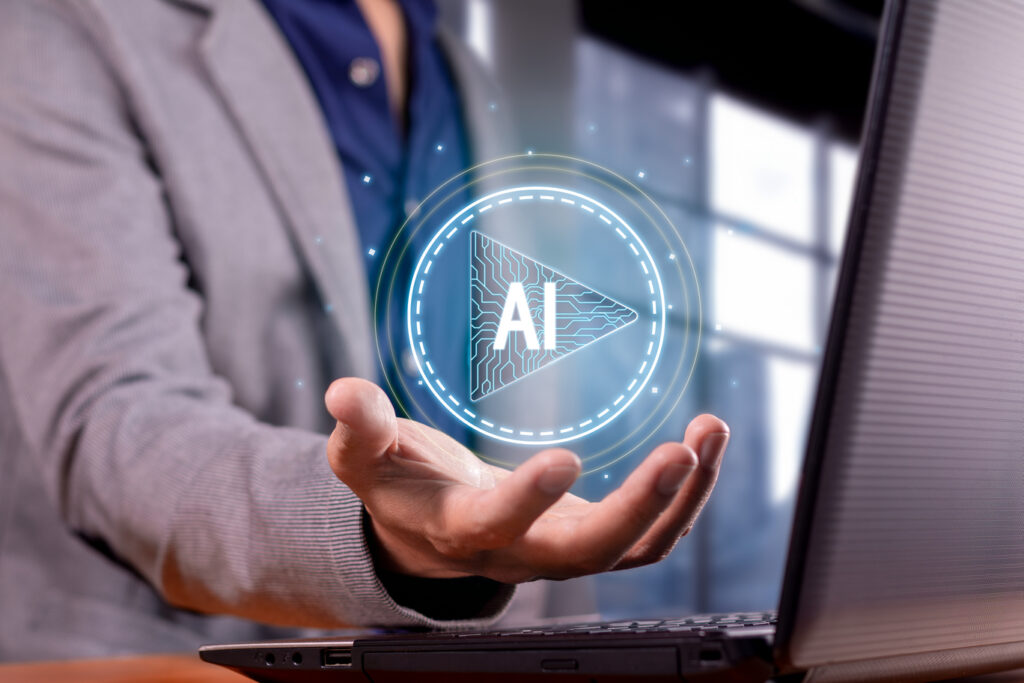The Rise of Artificial Intelligence (AI) and Automation
AI in Daily Life: Smart Homes to Autonomous Vehicles
- Exploring the realm of AI in daily life reveals how it’s seamlessly integrated into our routines, from smart homes to autonomous vehicles. In smart homes, AI powers virtual assistants like Amazon’s Alexa or Google Home, enabling voice-activated control over various functions such as lighting, temperature, and entertainment systems. These AI applications enhance convenience and efficiency, making homes more intuitive and responsive to occupants’ needs.
- Transitioning from smart homes to the streets, AI plays a pivotal role in the rise of autonomous vehicles. Companies like Tesla, Waymo, and Uber are pioneering self-driving car technology by leveraging AI algorithms for real-time decision-making on the roads. These autonomous vehicles offer a glimpse into the future of transportation, promising safer roads, reduced congestion, and increased accessibility for individuals unable to drive.
Automation in the Workforce: Impact on Employment
- Incorporating automation into the workforce has a profound impact on employment dynamics. Industries across sectors are embracing automation to streamline operations, enhance productivity, and reduce human error. Tasks that are repetitive or require precision, such as assembly line processes or data entry, are increasingly automated to improve efficiency and output consistency.
- While automation creates opportunities for innovation and higher-value tasks, it also raises concerns about job displacement and the need for upskilling the workforce. Positions that involve routine manual or cognitive duties are at risk of automation, leading to a shift in job requirements towards roles that demand creativity, critical thinking, and adaptability. As AI and automation continue to advance, workforce readiness and retraining programs are essential to navigating the evolving job landscape.
Proliferation of the Internet of Things (IoT)
- Continuing from the integration of Artificial Intelligence (AI) and automation into daily life discussed earlier, I’ll now delve into the Proliferation of the Internet of Things (IoT), another pivotal technology trend that is shaping the future of society.
Enhanced Connectivity and Smart Cities
- In the realm of technology trends, one cannot overlook the impact of IoT in fostering enhanced connectivity and driving the evolution of smart cities. IoT devices and sensors are revolutionizing urban landscapes by collecting and exchanging data to improve efficiency and sustainability. These interconnected technologies enable city infrastructures to respond dynamically to various needs, ranging from optimizing traffic flows to enhancing public safety through real-time monitoring systems. As smart cities continue to emerge globally, the integration of IoT is expected to reshape how urban environments function, offering new possibilities for energy management, waste reduction, and overall quality of life.
IoT Security Concerns and Developments
- With the rapid expansion of IoT devices in both personal and professional settings, concerns regarding cybersecurity have gained prominence. The interconnected nature of IoT systems opens avenues for potential vulnerabilities that can be exploited by malicious actors. As a result, the development of robust IoT security solutions is crucial to safeguarding data privacy and preventing cyber threats. From encryption techniques to authentication protocols, ongoing efforts are underway to enhance the security infrastructure surrounding IoT devices. By addressing these concerns proactively and implementing stringent security measures, the potential risks associated with IoT adoption can be mitigated, ensuring a more secure digital environment for individuals and organizations alike.
The Evolution of 5G Networks
The Speed and Broadband Revolution
5G networks represent a significant leap forward in wireless communication. With speeds up to 100 times faster than 4G, 5G technology is revolutionizing connectivity. The increased bandwidth and low latency of 5G networks provide the foundation for a multitude of innovations across various industries. From streaming high-definition content seamlessly to enabling real-time data transmission for mission-critical applications, the speed and reliability of 5G are driving a broadband revolution.
5G’s Role in Future Tech Innovations
The role of 5G in shaping future technological advancements cannot be overstated. As the backbone of the Internet of Things (IoT) ecosystem, 5G networks will enable a vast array of connected devices to communicate and operate more efficiently. From smart homes to autonomous vehicles, 5G’s high-speed connectivity will unlock new possibilities for automation and real-time decision-making. Moreover, industries such as healthcare, manufacturing, and transportation are poised to benefit from the reliability and low latency of 5G networks, paving the way for transformative innovations.
Blockchain Beyond Cryptocurrencies
The Promise of Decentralized Finance (DeFi)
Exploring Blockchain technology beyond cryptocurrencies opens up a realm of possibilities, particularly in the realm of Decentralized Finance (DeFi). DeFi leverages Blockchain’s decentralized nature to transform traditional financial systems, offering services like lending, borrowing, and trading without the need for intermediaries like banks.
Blockchain for Secure Transactions and Supply Chains
Blockchain’s underlying technology, with its immutable and transparent ledger system, is a game-changer for secure transactions and supply chains. It ensures trust and security by cryptographically linking each block of data, making it tamper-resistant. From verifying the authenticity of products in supply chains to enabling secure cross-border transactions, Blockchain is revolutionizing how we conduct business in today’s interconnected world.
The Sustainability Movement in Tech

Continuing the discourse on tech evolution, let’s delve into The Sustainability Movement in Tech and explore how the tech industry is embracing sustainable practices to shape a more eco-friendly future.
Green Technologies and Renewable Energy
Innovations in tech are propelling the adoption of Green Technologies, leading to a significant shift towards renewable energy sources. This shift is evident in the increased utilization of solar and wind energy to power tech infrastructure and reduce carbon footprints. Companies are investing in eco-friendly practices like green data centers that optimize energy efficiency and reduce environmental impact. By harnessing renewable energy solutions, tech firms are not only cutting costs but also contributing to a cleaner, greener environment.
E-Waste Management and Ethical Electronics
E-Waste Management is a crucial aspect of sustainability in the tech sector. With the rapid pace of technological advancements, the disposal of electronic devices has become a growing concern. To address this, the tech industry is focusing on implementing sustainable solutions for managing electronic waste. Initiatives like electronic recycling programs and designing products with recyclable materials are gaining traction to mitigate the environmental impact of e-waste. Moreover, the concept of Ethical Electronics is gaining momentum, emphasizing the need for ethically sourced materials and responsible manufacturing processes in the tech supply chain. By promoting ethical practices, the industry aims to reduce e-waste and foster a more sustainable approach to technology development.
The Frontiers of Health Tech
In discussing the frontiers of health tech, wearables and personal health monitoring play a pivotal role. Wearable devices, such as smartwatches and fitness trackers, have revolutionized how individuals track their health metrics in real-time. These devices monitor vital signs like heart rate, sleep patterns, and physical activity levels, offering valuable insights that empower users to make informed decisions about their health and well-being.
Biotechnology breakthroughs and genomic medicine represent cutting-edge advancements in the field of healthcare. Biotechnology applications, such as gene editing and personalized medicine, are reshaping the way diseases are diagnosed and treated. Genomic medicine, which analyzes an individual’s genetic makeup to tailor medical treatments, holds the promise of more targeted and effective healthcare interventions. These breakthroughs are paving the way for precision medicine approaches that offer personalized and precise treatment plans based on an individual’s genetic profile.
Challenges and Solutions for Tech Accessibility
Bridging the Digital Divide
Bridging the digital divide is crucial in ensuring equitable access to technology. It involves addressing disparities in technology access based on factors like income, geography, and education. One way to bridge this gap is through initiatives that provide affordable internet access to underserved communities. By partnering with governments and private organizations, we can expand internet infrastructure and make devices more accessible to all members of society.
Inclusive Design in Technology Development
Inclusive design in technology development is essential for creating products that can be used by individuals with diverse abilities. It involves considering accessibility features from the initial design phase to ensure usability for all users. By incorporating features such as screen readers, voice commands, and adjustable font sizes, tech companies can make their products accessible to a wider audience. Prioritizing inclusive design fosters innovation and ensures that technology benefits everyone, regardless of their unique needs.
 Continuing the discourse on tech evolution, let’s delve into The Sustainability Movement in Tech and explore how the tech industry is embracing sustainable practices to shape a more eco-friendly future.
Continuing the discourse on tech evolution, let’s delve into The Sustainability Movement in Tech and explore how the tech industry is embracing sustainable practices to shape a more eco-friendly future.



